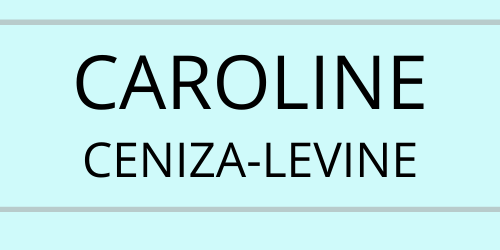Too many job seekers try to turn around a slow job search by tinkering with their resumes. But will changing a few words here or there really get you an interview or lead to a job? Even if you do manage to make your resume more attractive, when you rely on your resume to move your job search forward, you cede control of your job search to whomever happens to read your resume. Resume submission is a passive way to look for a job.
Even a great resume will not help your job search all that much (although the actions required in putting together a great resume will help your networking, interviewing, and branding, which in turn helps you land a job). If your job search has stalled, stop editing your resume, and take a more active approach to moving your job search forward.
Here are ten actions to take to turn your slow job search around:
Reach out to your network
People hire people. If you’re spending a lot of time on resumes, you may not be getting in front of enough people. Email a former colleague. Meet an old classmate for coffee. If you’re already doing some of this, do more. In the choice between reaching out to someone or sending a resume to a job posting, the more productive action for your job search is reaching out.
Follow up on a previous contact
Networking isn’t just about adding more people to your pipeline. More importantly, it’s about following up with people with whom you already have made contact. Check in with the company who interviewed you but went with someone else – maybe that person didn’t work out. Check in with the recruiter who called with a job that wasn’t quite right – maybe something new and more fitting came along. Check in with the old classmate you invited to coffee who didn’t respond – maybe they didn’t get your first contact.
Find a newsworthy story for your area
You should be keeping up with the latest trends and issues in your area of expertise. It gives you something to talk about when you have all those networking meetings I keep encouraging! It also makes you a more informed candidate in your interviews. Finally, you can share newsworthy stories on your social feed, which helps your networking by pinging your connections with something interest and also helps your branding by highlighting your expertise.
Identify a new company to target
Just like you want to continually refresh news about your area of expertise, you also want to refresh the companies that you are targeting. Have you really finished your research on all your companies of interest? If so, how about their competitors? How about start-ups in the field? Check the Inc 5000 for fast-growing private companies. Check your professional association for member company news. Check your alma mater – maybe there is a professor who specializes in your area and gets an early look at companies in that field.
Leave a practice response on your voicemail
A resume just gets you in the door. Strong interviewing skills will keep you coming back. A good way to practice your interview responses is by leaving them on your voicemail – tell me about yourself, what is your biggest accomplishment, walk me through this project [pick something on your resume you know you will be asked about].
Check in with your accountability partner
Hopefully, you have either a formal accountability partner that you check in with about your job search or at least a good friend who encourages you when you need it. A refreshing, inspirational phone call may be more of what you need than yet another draft of your resume.
Take an active break
Connecting with your accountability partner could be one example of taking a break if you truly just talk inspiration and not intense brainstorming for your search. If you need a full break from your search, go for a walk, take an exercise class, or do some other high-flow, engaged activity. Watching TV or other low-flow, low engagement activity may tire or depress you more.
Read a success story
Reading is another example of a high-flow, engaged activity. Reading success stories is a great way of keeping your spirits high during the invariable ups and downs of a job search. Success stories about job search also help you combat limiting beliefs about not having what it takes. One example: my recent Forbes post on a 50-year old career changer who went from layoff to promotion and raise within three months!
Make a success story
Ok, maybe you can’t singlehandedly get someone hired, promoted, or up the salary band. But is there a connection you can make between two people in your network? Is there a job posting you saw that someone else would be great for? If a recruiter called you about something not right for you, can you refer someone for that role?
Update your social profile
While I’m not a fan of making too many edits to your resume, I am a fan of continually updating your social profile. The main sections shouldn’t change too much, but the nice thing about social platforms is that your activity is shared with your network, so as you post, comment, or share things, it keeps you front of mind with your broader network.
Before you default to spending yet more time on your resume, remember there are many other factors and more active choices for your job search. Work on networking, research, interviewing, and other areas of your branding. Or simply take a break!






